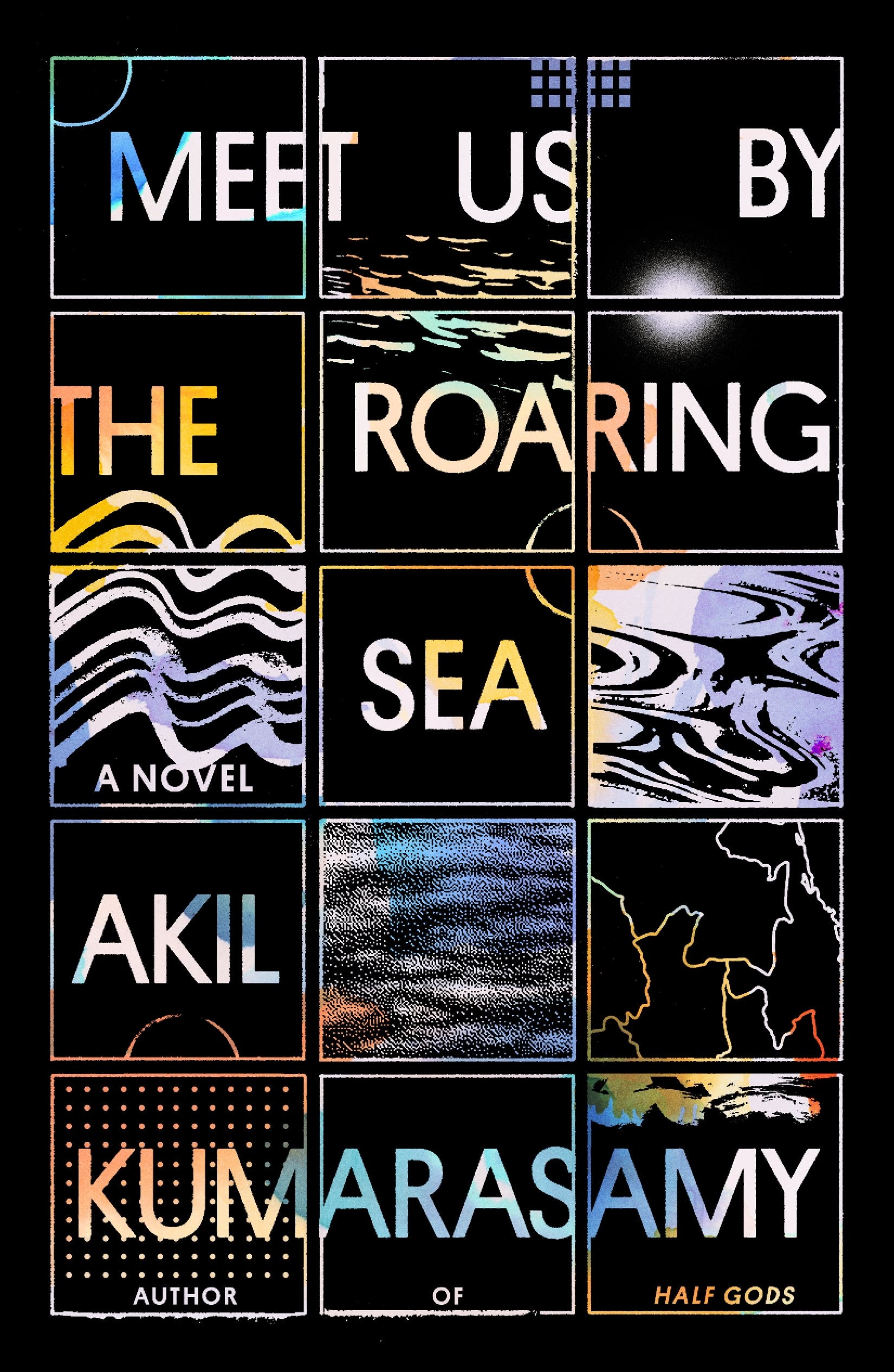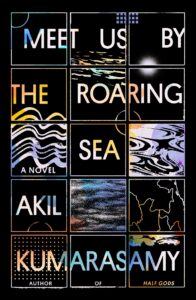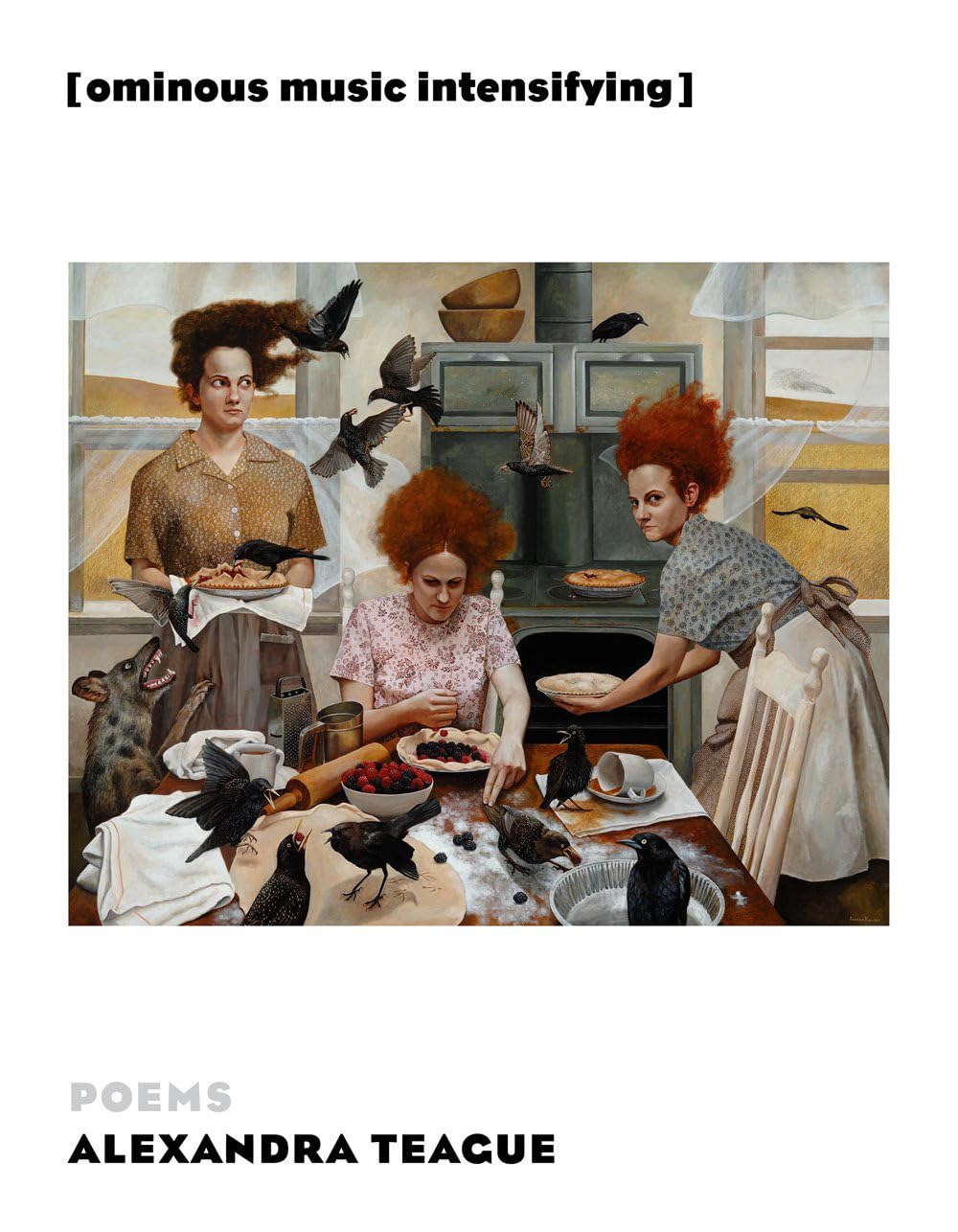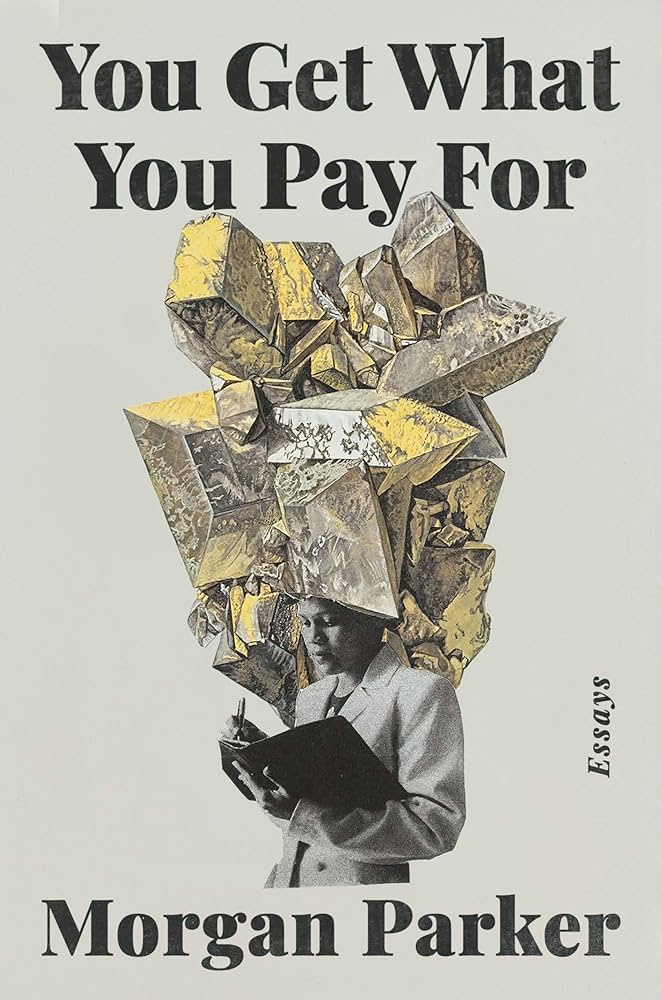Curated by SOFIA BELIMOVA
Last month, we launched Issue 24, which features wispy, ethereal poems, striking watercolors of the Stebbins Cold Canyon flora and fauna, stories about resilience in the face of war and natural disaster, and essays that celebrate humor and heritage. Wondering what our contributors are reading to keep themselves inspired? Look no further than this month’s Friday Reads.
Akil Kumarasamy’s Meet Us by the Roaring Sea, recommended by Ahmed Naji (Issue 24 contributor)
“Your mother, a devout internationalist and anti-capitalist, who took pride even in a bird shitting on a car—nature striking back against modernity—would have appreciated it.”
Akil Kumarasamy took a challenging route in her first novel: second-person narration, a non-linear narrative, and a story built on the aesthetic of prose rather than the flat plot of drama.
On the first page, she gives it all to us. A young woman grieves for her deceased mother while living in her “mother’s, grandmother’s, great grandmother’s house in Queens.” She is surrounded by family and relatives who care about her. Her cousin Rosalyn moves in to live with her. Still, instead of supporting her, she drags her into watching a TV show called “Soldier’s Diaries,” which follows American troops deployed in a “stabilization zone.” All this is happening in a futuristic climate change dystopia where your “carbon scores” become more important than your credit score.
A fog of ambiguity fills the book and invites you to search for a sense of certainty. The unnamed protagonist is looking for the same thing as us. She finds it in returning to her old passion for studying Tamil. She starts translating “a collective memoir” of seventeen Tamil medical students working in the 1990s.
They learn medicine by practicing it on refugees’ bodies because there aren’t enough doctors; not enough food, but too much suffering. This leads them to develop the philosophy of radical compassion.
Translating a text from an ancient language is an act of compassion; through it, the protagonist gets saved.
Akil’s sense of humor is remarkable. It elevates the novel from melodrama and creates delicate prose in which sentences become lodged in the mind, forcing you to stop reading and take a moment to appreciate its beauty and craft.
Meet Us by the Roaring Sea is the perfect read for autumn blue vibes.
María José Ferrada’s How to Order the Universe (translated by Elizabeth Bryer), recommended by Gerardo Sámano Córdova (Issue 24 contributor)
“The second year I learned to look out the window.”
M, a seven-year-old, follows her traveling salesman dad, D, across towns in Pinochet-era Chile selling Kramp (the book’s title in Spanish) hardware supplies. M skips school, smokes stolen cigarettes, makes deals to get a percentage of D’s sales, learns to make faces at hardware store owners so that they’ll buy more screws, nuts, umbrellas (whatever they are pushed to sell by management), and hangs out with other salesmen at the restaurants where this semi-nomadic clan congregates. M delights in the towns she encounters, the people she meets, the stores she gets to explore. She’s witty and sharp, and yet, in all her cleverness she remains innocent to the horrors happening around her.
This is a book about looking, and about how we process and organize that which we look at. Ferrada invites us into M’s intimate bubble, a child’s bubble threatened by the spiky world prowling around her. Along with M’s delightful, funny, never-want-to-stop-reading voice, the book’s triumph stems from the tension Ferrada builds in capturing what M sees versus what M knows versus what M understands. The threat to her childhood innocence looms large, a threat that we readers see but M does not, a threat to her delightful worldview that replaces wonder for sadness, playfulness for anger, and a world that can be organized for an irredeemably chaotic one. We brace for when this knowledge crashes into M, its effects already apparent in her mother and E, a photographer of ghosts, whom M and D encounter in their travels. What does understanding the larger world give us and at what cost?
Filled with tenderness, awe, and love, How to Order the Universe whisks us away into M’s life, a life that will inevitably change, but a life that, for the moment, demands to be enjoyed and cherished. It is a gem of a book, short and brilliant, a shooting star we would want to hold on to, but, as anything worth experiencing, can’t.






